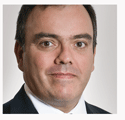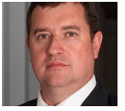Lusophone Africa investors face challenge of protectionism – Vieira de Almeida
Strict foreign exchange control regulations hinder capital flows and the repatriation of profits
Protectionism, in the form of a phased approach to international procurement rules, along with “local content” requirements and strict exchange control regulations are the biggest challenges facing international investors in Angola and Mozambique, according to Vieira de Almeida & Associados partner Manuel Protásio.
He adds that there are also requirements relating to the employment of local people in order to ensure that “know-how” is transferred. “For example, in Mozambique, there is a requirement in large scale projects that part of a company’s equity should be reserved for local investors,” Protásio says. “On the other hand, exchange control regulations still hinder capital flows and particularly the repatriation of profits – all these constraints are legitimate in that they intend to favour the local economies and populations but they clearly add complexity to international investment.”
However, growth in economies such as Angola and Mozambique is expected to be dramatic this year. Mozambique´s GDP is expected to increase by 8.5 per cent, while Angola´s GDP is expected to grow by 6.3 per cent.
“Markets such as Angola and Mozambique are very exciting at the moment – at the same time, double digit growth is not sustainable in the domestic market so law firms are looking for growth elsewhere,” Protásio says. He adds that this growth is apparent in a number of sectors – for example, in Angola, in addition to opportunities in the oil industry, there are also many construction companies working on infrastructure projects. Protásio also highlights potential opportunities in the rapidly developing capital markets and banking sectors in Angola and Mozambique.
Vieira de Almeida & Associados also opened an office in East Timor in March this year. “East Timor does have oil reserves but everything needs to be done because it is a relatively new country,” Protásio says. “There are roads to build, utilities and health services to improve.”












